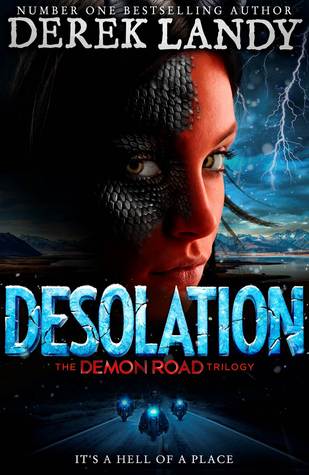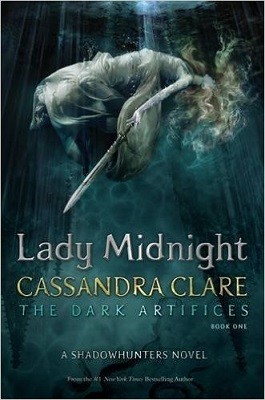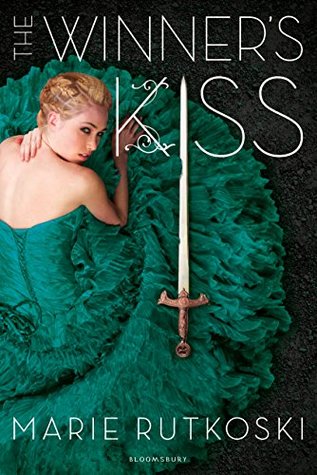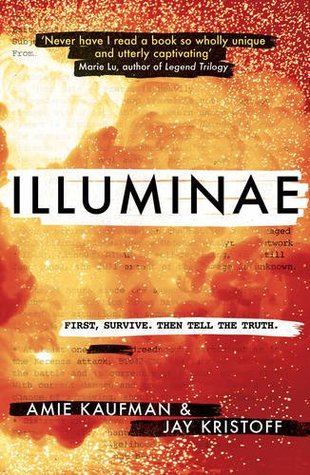
Book Title: Desolation
Author: Derek Landy
Series: Demon Road #2
Series: Demon Road #2
Date Started: March 23rd 2016
Date Completed: March 28th 2016
Genres: Horror, Fantasy, Action, Thriller
Quality Rating: Four Stars
Enjoyment Rating: Four Star
Quality Rating: Four Stars
Enjoyment Rating: Four Star
Final Rating: Four stars
Review:
◆ Thank you NetGalley for this eBook copy for review ◆
Image Source - https://www.goodreads.com/book/show/26791238-desolation
◆ Thank you NetGalley for this eBook copy for review ◆
Desolation felt like it dipped a lot further into the horror genre than its predecessor, and though I'm not the biggest fan of horror I trust Derek pretty much unconditionally and it paid off because I enjoyed this book. It wasn't my favourite of what he's written, but I really respect the steps he's taken away from Skulduggery, especially after the response of Demon Road being very reminiscent of his other series. This feels like a different story now, and I'm slowly getting over the fact that Skulduggery is actually over.
Derek's a really skilled writer, though I have to admit I didn't really get the feeling of his trademark humour this time; it mostly works on lightheartedly joking about darker subjects - but when it gets this dark it's hard to joke around it. (Having said that, I liked that there are some very dark and twisted parts to these books, it's just not what I immediately expect from Derek.)
Something I noticed particularly in Desolation was how well Derek writes age diversity, and when I think about it he's always done it incredibly well. There's such a range of generations when it comes to characters, even within the 'main' cast of people, and we get to jump around in all their stories, and each is told just as convincingly as another. We can shift from a fourteen-year-old kid being immature but kind, to an elderly man tired with the modern world, to a seventeen-year-old girl going through your average teenage crisis while also running for their lives across America - okay maybe not that average.
I kind of miss the slow discovery of all these supernatural parts of the world that we had in the first book; everything felt a little static in Desolation after the whirlwind of last time. It was good in the end, but it did take a while to pick up after establishing that Desolation town was weird. I wanted to get past the 'weird' bit and onto the chaos and action and, well, desolation that Amber and Milo tend to leave in their wake. But I wasn't disappointed by those standards in the end.
You've also got to love these books for their geeky little references that sneak their way in (I can definitely see where Game of Thrones and maybe X-Men have had their influences - and of course every horror film ever). I'm generally not a huge fan of spending all your time making little in jokes for your own characters that don't mean a whole lot to your reader, but Derek's subtle and clever enough to make them very relatable without being directly real.
Desolation had a good ending, and I like where it leaves us for the finale, but I have to say it felt a bit rushed right at the very end when everything else before has taken so long. Arguably this whole trilogy follows directly on from one another but I was left feeling a little bit like we had cut off before the proper climax - which understandably will probably be the entire last book knowing Derek - but it just felt a bit off for me.
Character-wise I'm so, so, so happy with what he's done. When it comes to diversity, sexuality, human nature and relationships, hero tropes and character roles, Derek just has this way of making you think it's a good quality norm, and then turning things on their heads so you're left wondering why you would ever make assumptions about someones identity. And at the same time, he can joke around with it honestly and fairly, but keep up that humour and satirical atmosphere. Characters are a lot more interesting when you're invited to appreciate what they're going through, but also to not take them entirely seriously all the time.
Amber herself is a great protagonist. There's almost a trend in Young Adult fiction at the moment around trying to ignore the 'chosen one' trope by making the protagonist an antihero - what I've found is that mostly antihero has been condensed down to not being a nice person all of the time, but still ultimately saving the day and having people treat you like a saviour anyway. In a lot of ways you could see Amber as this too, but in a lot of ways she's not that: she's not a good person. I'm not rooting for her anymore, but hell it's so interesting to read about, because I don't see her as the good guy anymore, and that's not her fault, but that's the way it is. And she isn't going to waste time crying over how unfair it is. She owns it and she goes out and kicks ass instead.
My one criticism when it comes to characters in Desolation was that there was no way near enough Milo. I said last year that Milo basically had my reaction to everything going on, and I needed more of that this time around. Because Milo is great and Amber values his friendship even if she's got slightly bigger problems that keeping up conversation with him.
Derek took his sweet time in this book. I was starting to get a little worried near the beginning because I just could not get into it, but then when he actually started his story things went pretty smoothly from there. Derek writes chaos (both its loud and quiet moments) very well, but it means that the set up can sometimes be a bit awkward if it takes some time to establish - after going from such a huge climax at the end of the last book I can understand why suddenly there had to be a bit of a lull in activity before things started up again.
Looking at the release times for this trilogy I'm very impressed that they're coming out so close together (the last book is supposed to be with us in August of this year), and to a high quality. There's no shame in taking time with redrafting but it's quite a skill to be able to churn them out to such a tight deadline as well. And I think we can expect to go even deeper into the horror genre for the conclusion of the series, though I have to say I still haven't exactly been scared by Derek's books yet - they're creepy and weird (and very gory), but not scary. Not yet. Don't hold me to that for the future.
Image Source - https://www.goodreads.com/book/show/26791238-desolation





